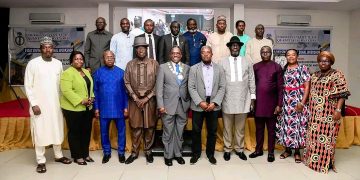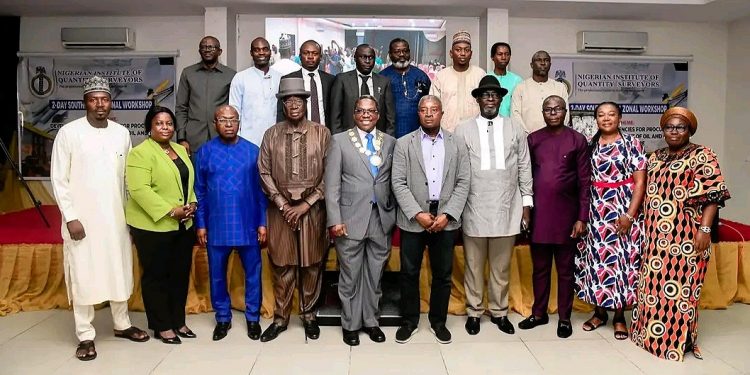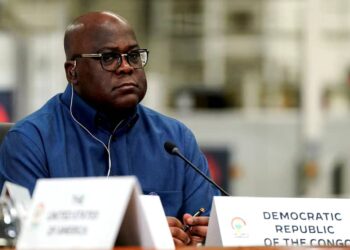By John Ikani
Skills and competencies of quantity surveyors have been identified as critical to cost management and local content expansion in Nigeria’s oil and gas industry.
That was the kernel of a presentation by the Executive Secretary, Nigerian Content Development and Monitoring Board (NCDMB), Engr. Simbi Kesiye Wabote, at a two-day workshop themed “Developing Competencies for Procurement and Cost Management of Oil and Gas Infrastructure,” in Yenagoa, Bayelsa State on Tuesday.
Engr. Wabote who was represented by the General Manager, Corporate Communications and Zonal Coordination, Dr. Ginah O. Ginah, emphasised that quantity surveying is a frontier whose value propositions have to be identified and utilised to deepen Nigerian Content.
Recounting the successes of the Board, which have raised local content from less than five percent in 2010 to 47 percent in the first half of 2022, he noted that “NCDMB is only 12 years old but it has performed creditably in infrastructure, human capital, and capital retention.”
He noted that NCDMB’s direct involvement in the conceptualisation and development of Total Exploration and Production’s gigantic multi-billion Total Energies’ Egina Floating Production Storage and Offloading (FPSO) vessel, handled by SAMSUNG and LADOL, marked a turning point in Nigerian content penetration in oil and gas industry operations.
The NCDMB boss went on to note that six topside modules of the FPSO were fabricated and integrated in-country for the first time in the history of the industry, and SAMSUNG and LADOL, a consortium, had to build a $300 million world-class fabrication yard at Tarkwa Bay, Lagos, for the purpose, based on insistence by the NCDMB. The FPSO has a capacity for 2.3 million barrels of crude oil.
He hinted that quantity surveying practice was indispensable in determining the cost per barrel of crude oil and would also improve procurement through cost management.
According to petroleum industry records, international oil companies (IOCs) in Nigeria determine the production costs, and Nigeria’s cost per barrel is said to among the highest in the world, ranging between $15 and $20, as against $4 per barrel in Saudi Arabia.
The Executive Secretary assured the NIQS that NCDMB would collaborate with its practitioners as the Board strives for 70 per cent local content by 2027, as set out in its Nigerian Content 10-Year Strategic Road Map.
He highlighted NCDMB’s capacity building role and strategic interventions that have catapulted Nigeria-owned service companies to the international level, some of which are now operating across.
The local content helmsman mentioned modular refineries, liquefied petroleum gas (LPG) cylinder manufacturers, equipment component manufacturers, and world-class pipe mills, as among business firms aided by NCDMB all over the country, while hundreds of seafarers trained overseas by the Board are now sailors in sea-going vessels.
Earlier in an address, the President, Nigerian Institute of Quantity Surveyors, QS Michael Shonubi, said that the workshop was necessitated by the need to sharpen the skills of practitioners and to deepen their competencies for participation in the highly technology-based oil and gas sector in Nigeria and abroad.
He thanked the NCDMB for responding positively to the Institute’s invitation.



































